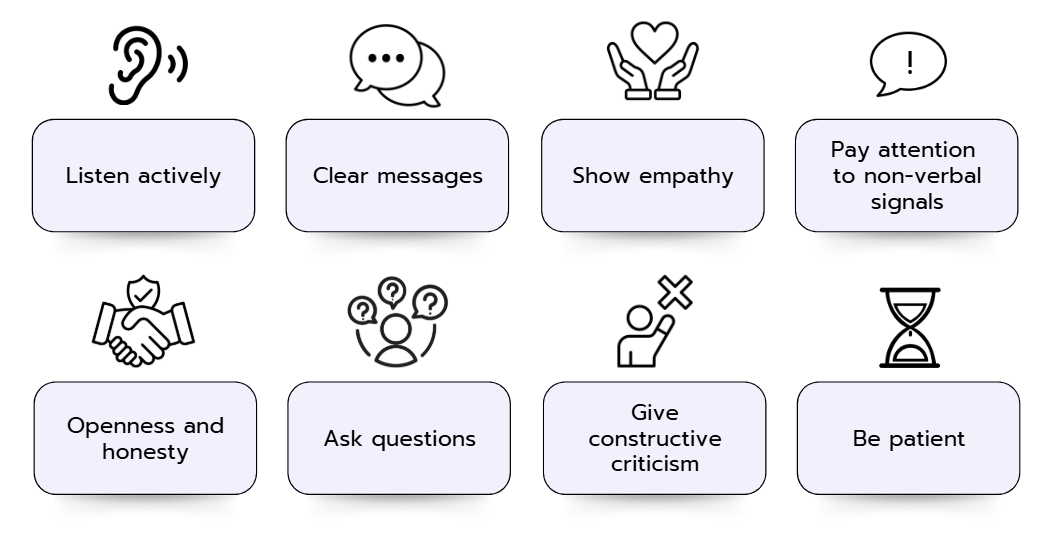Interpersonal communication refers to the exchange of information, thoughts, feelings, and ideas between individuals. It includes both verbal and non-verbal communication and plays a crucial role in interpersonal relationships. This form of communication is fundamental for connection, understanding, and cooperation between people.
The following example will show the importance of interpersonal communication:
When two friends talk about how their day was, they share not only facts but also emotions and perspectives that can deepen their relationship.
Importance in Interpersonal Relationships and Roles
Interpersonal communication is essential to build, maintain, and improve relationships. In romantic relationships, it fosters trust and intimacy; in friendships, it enables mutual understanding; and in professional relationships, it improves teamwork and efficiency. In various roles such as parenting, partnership, friendship, and work environments, it enables conflict resolution, information sharing, and the expression of empathy.
Specifically, successful interpersonal communication in a professional context can lead team members to work together more effectively by sharing clear expectations and providing constructive feedback.
Factors for Successful Communication
Successful interpersonal communication requires active listening to understand the speaker's message. In addition, understanding nonverbal signals such as body language and tone of voice is significant. Choosing the right words and considering the receiver's emotions are also critical. Openness, honesty, and empathy promote a good communication climate.
Challenges and Difficulties
Difficulties in interpersonal communication can arise from misunderstandings, cultural differences, unclear messages, or lack of empathy. Communication barriers such as distractions, prejudice and lack of openness can hinder understanding.
Checklist for Successful Communication

- Listen actively:
Show interest and focus on your communication partner. - Clear messages:
Use clear and precise language to minimize misunderstandings. - Show empathy:
Put yourself in the other person's shoes to promote understanding. - Pay attention to non-verbal signals:
Pay attention to body language, facial expressions, and tone of voice. - Openness and honesty:
Share relevant information and feelings openly. - Ask questions:
Clarify ambiguities to promote understanding. - Give constructive criticism: Give feedback respectfully and constructively.
- Be patient: give the other person time to express himself.
Interpersonal Communication in Management Consulting
In management consulting, successful interpersonal communication is critical to success. Consultants need to gather clear information from clients in order to understand their needs. At the same time, they must communicate solutions and recommendations clearly and persuasively to gain the trust of clients. Teamwork and the ability to communicate effectively with all parties involved are essential to successfully complete projects and build long-term relationships.

